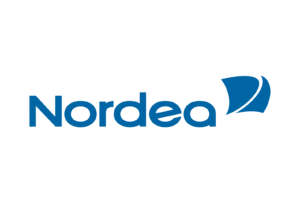News
Business News in Brief: Nordea lets 6,000 go in massive streamlining effort
This article is more than 8 years old.
Elsewhere, Medtronic nets AmCham award, and Danish start-up wins World Expo 2020 grant

Third quarter woes behind drastic move (photo: Nordea)
Last month, it emerged that Denmark had missed out to Finland on hosting Nordea’s new headquarters, which is relocating from Sweden, and now it has revealed that 6,000 employees will lose their jobs at the Nordic bank.
The decision follows a third quarter financial result that revealed a 5 percent decrease compared to the same quarter last year.
“To ensure that our ability to compete in the long term remains intact, we plan to further reduce the number of employees and consultants by at least 6,000 – 2,000 of which are consultants,” said Casper von Koskull, the CEO of Nordea.
Waiting on figures
Von Koskull attributed the fall in revenue to the bank being two years into a new strategy that involves significant investment in technology.
It remains unknown how many of the 6,000 jobs affected are in Denmark, but most of the bank’s employees are based in Denmark.
AmCham picks Medtronic
The US chamber of commerce in Denmark, AmCham Denmark, has named US medical device firm Medtronic as the 2017 Foreign Company of the Year. AmCham praised Medtronic for its engagement in the Danish healthcare sector and dedication in developing strategic partnerships with Danish hospitals. Previous winners of the award include DuPont, Bayer and Roche.
Danish Expo 2020 winner
The Danish start-up Be My Eyes, which uses mobile technology to make the world more accessible for the blind and visually impaired, is among the companies to win an Expo Live grant from the organisers of the 2020 World Expo in Dubai. Be My Eyes connects the blind community to sighted volunteers, who then convey what they see via live streamed video.
Peerless in San Francisco
The Danish start-up Peergrade, which was launched by a PhD student from the Technical University of Denmark (DTU), has been chosen by the exclusive US investor Y Combinator to take part in a three-month program in San Francisco that will allow the company to pitch its ideas to influential investors. Based in Copenhagen, Peergrade has developed an electronic platform that allows students to evaluate each other’s assignments.










































